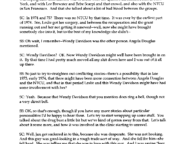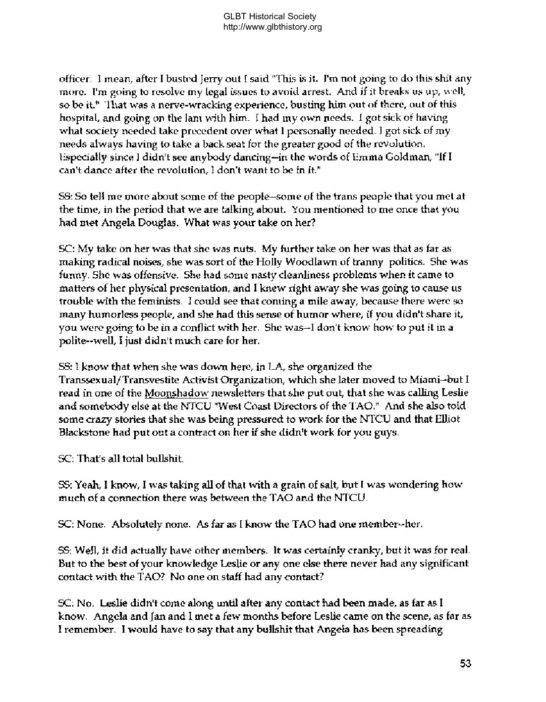In her interview with Dr. Susan Stryker, Suzan Cooke talks about her knowledge and opinion of Angela Douglas, whom she knew when they both lived and worked in Berkeley and San Francisco in the early 70s. Suzy Cooke had, as she admitted, a relatively low opinion of Angela Douglas, seemingly for reasons rooted in respectability politics. Cooke seems to have considered Douglas too abrasive, particularly in her humor (and, the implication seems to be, her humor around trans issues in particular) and in her ability to or interest in passing. Passing refers to the ability of a trans person to be read as their gender without their trans status being noticed. Arguments about passing have historically been used to undermine trans women, which makes anxieties such as Cooke’s a relatively common example of internalized transphobia, wherein one person fears that another trans person’s behavior could have negative consequences for them. Given the anti-trans positions of many feminists, Douglas may well have been rejected by them. From her interviews with The Barb and personal writings, Douglas’ politics seem up in the air depending on how she feels that day, which Cooke validates.
The NTCU was the National Transsexual Counseling Unit, an evolution of COG. In the interview, Dr. Stryker mentions that in an issue of Moonshadow, Douglas’ later trans publication, she mentions that NATCU begged her to work for them, which Cooke condemns as “total bullshit.” Douglas claims the same thing here, in a 1974 article of Mirage. Moreover, according Dallas Denny, a transgender historian, by the late 90s Moonshadow became somewhat of a paranoid rant calling out folks who supposedly stole her work which they attribute to a manifestation of mental health disabilities. Similarly, in an issue of Mirage, Angela claims that many people were running around town claiming they founded TAO, though there is no evidence to ground her argument.

